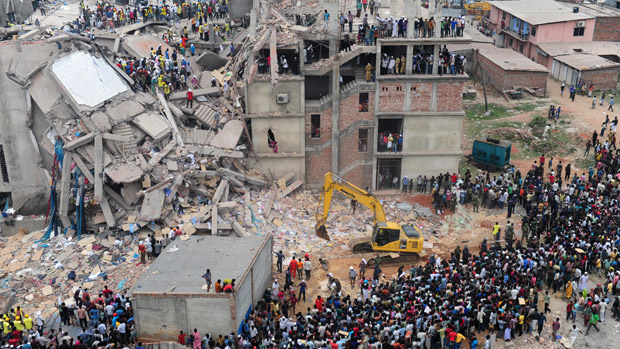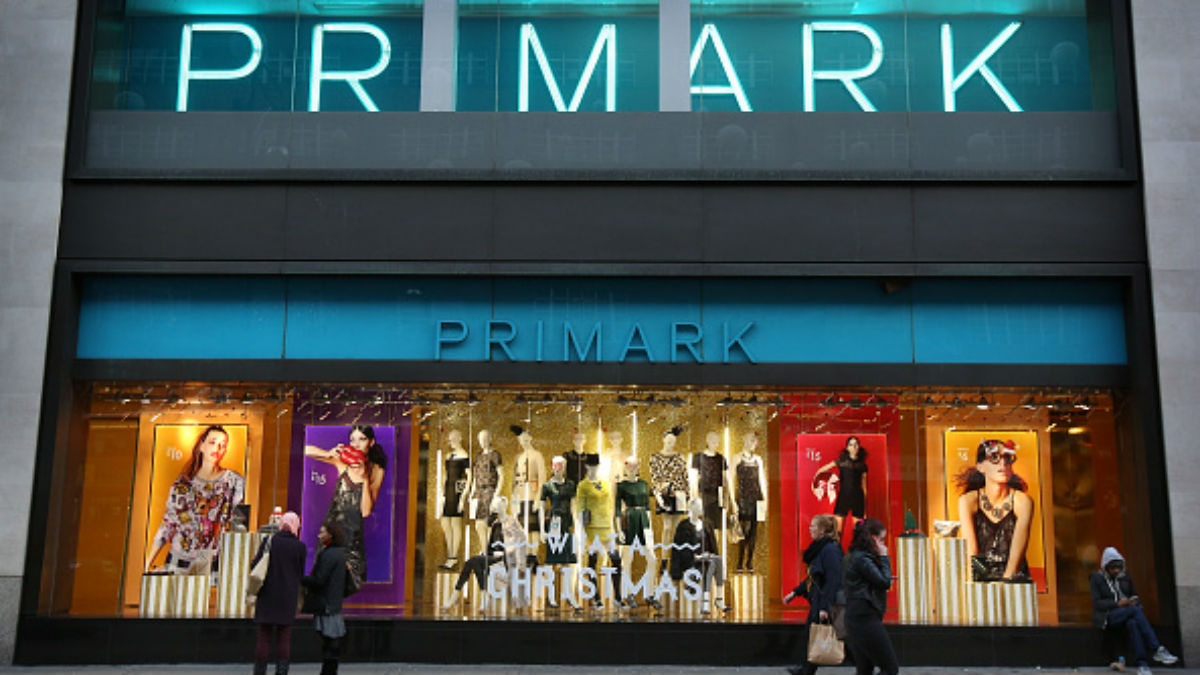Workers 'forced' into Dhaka factory that later collapsed
Survivors of Rana Plaza disaster say men with 'beating sticks' made them enter cracked building

A free daily email with the biggest news stories of the day – and the best features from TheWeek.com
You are now subscribed
Your newsletter sign-up was successful
WORKERS were threatened with 'beating sticks' to make them enter a Bangladeshi garment factory which later collapsed, killing at least 150 people and trapping hundreds more in the rubble.
About 2,000 people were inside the eight-storey Rana Plaza building in Savar – about 30km outside Dhaka city – when it collapsed yesterday at 9.00am local time. Cracks were noticed in the building on Tuesday, but its owners ignored warnings not to let staff inside the following day, local police have said.
It is understood the owners have gone into hiding as reports emerged that workers were herded into the building by men wielding 'beating sticks'.
The Week
Escape your echo chamber. Get the facts behind the news, plus analysis from multiple perspectives.

Sign up for The Week's Free Newsletters
From our morning news briefing to a weekly Good News Newsletter, get the best of The Week delivered directly to your inbox.
From our morning news briefing to a weekly Good News Newsletter, get the best of The Week delivered directly to your inbox.
"None of us wanted to go in," garment worker Nurul Islam told the Bangladeshi news website bdnews24. "The bosses came after us with beating sticks. At the end we were forced to get in."
Officials said the death toll is likely to rise higher than 150, and hundreds are still unaccounted for, according to eyewitnesses. Rescue workers are conducting a frantic search for survivors and the incident has triggered street protests by garment workers in Dhaka.
Bangladesh has one of the largest garment industries in the world due to the availability of cheap labour. Primark, a fashion company with a large presence in the UK, was one of the companies that made garments at the Rana Plaza factory. Its spokesman said it was "shocked and deeply saddened by the appalling incident" and it would work with other retailers to review standards.
The BBC's Anbarasan Ethirajan says that although the exact reason for the collapse is not known, the incident has "once again raised questions about safety standards in the country's thriving garments industry". There are unconfirmed reports that the owners of the Rana Plaza may have illegally added three extra stories to the building.
A free daily email with the biggest news stories of the day – and the best features from TheWeek.com
Edward Hertzman, a New York textiles broker, told Reuters that pressure from US retailers to minimise costs contributed to unsafe conditions. "Bangladesh is the longest lead-time country and a difficult country to work in, so the only way it becomes competitive is by offering the lowest [cost]. That's the catch-22," he said.
It is understood that some workers in the Bangladeshi garment industry are paid as little as 14 cents an hour.
-
 Quiz of The Week: 14 – 20 February
Quiz of The Week: 14 – 20 FebruaryQuiz Have you been paying attention to The Week’s news?
-
 The Week Unwrapped: Do the Freemasons have too much sway in the police force?
The Week Unwrapped: Do the Freemasons have too much sway in the police force?Podcast Plus, what does the growing popularity of prediction markets mean for the future? And why are UK film and TV workers struggling?
-
 Properties of the week: pretty thatched cottages
Properties of the week: pretty thatched cottagesThe Week Recommends Featuring homes in West Sussex, Dorset and Suffolk
